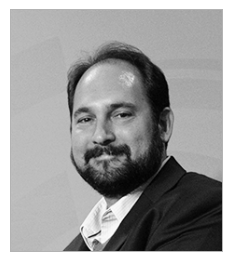Wolfram technologies have long been a major force in many areas of industry and research. Leaders in many top organizations and institutions have played a major role in using computational intelligence and pushing the boundaries of how the Wolfram technology stack is leveraged for innovation across fields and disciplines.
We recognize these deserving recipients with the Wolfram Innovator Award, which is awarded at the Wolfram Technology Conferences around the world.

David Creech
Areas: Industrial Engineering, Mechanical Engineering, Risk Analysis, Software Development, System Modeling
David Creech is the manager of engineering analysis and development at McDermott (formerly CB&I) and a longtime user of the Wolfram Language. In his undergraduate and graduate programs, Creech used the Wolfram Language for mechanical engineering work, including the development of a Wolfram Language package for automating calculations to produce consumer ratings diagrams. At McDermott, he uses Wolfram technology in the development and management of leak detection and repair (LDAR) programs for industrial facilities. In 2012, he started an initiative at McDermott to replace hundreds of FORTRAN and Excel programs with Wolfram Language packages, modernizing their engineering workflow to provide easier access and customization for engineers. Creech’s colleagues are now using the Wolfram Language for their own computations and connecting them to these centralized packages to create more efficient tools for engineering their products.

Nicholas Mecholsky
Areas: Authoring and Publishing, Image Processing, Machine Learning, Nuclear Engineering, Optimization, Physics, System Modeling
Nicholas Mecholsky is a research scientist and professor focusing on optimization and physical modeling. In addition to demonstrating high-level math and physics concepts to his students with the Wolfram Language, he has utilized it in research publications on subjects ranging from animal flocks to autonomous cars to thermoelectric transfer. He is currently involved in a joint project with the US Department of Energy and Vitreous State Laboratory using Wolfram Language image processing and machine learning to model, analyze and predict crystallization phenomena in nuclear tank waste. The project has significantly improved the efficiency of vitrification (transformation into glass), helping to make safer nuclear waste storage a reality.
© Copyright 2000-2025 COGITO SOFTWARE CO.,LTD. All rights reserved